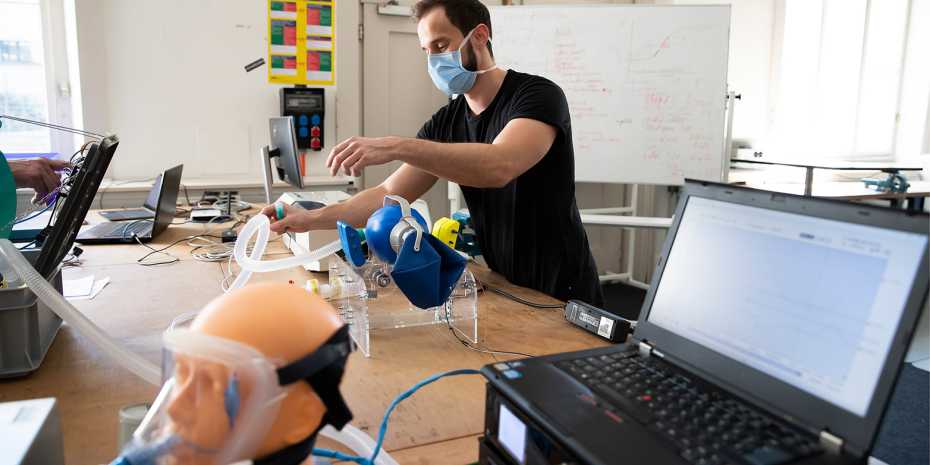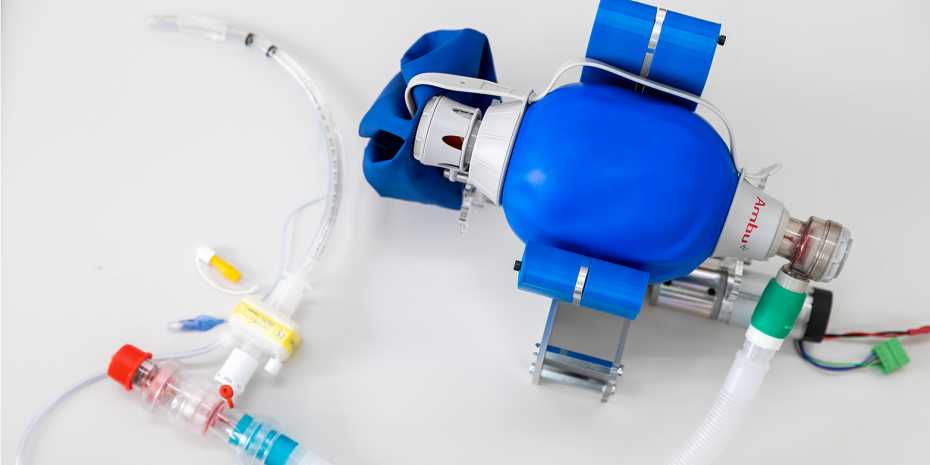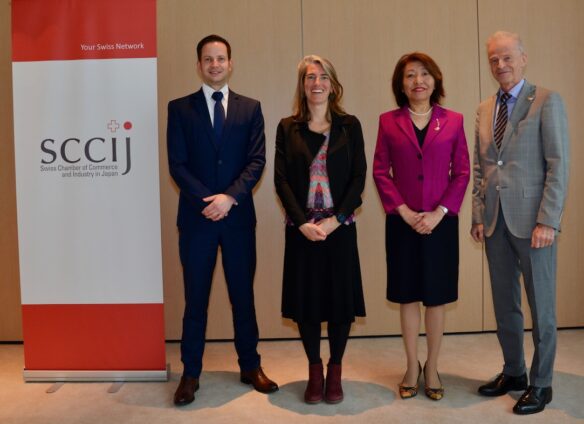Tokyo (SCCIJ) – A thorough test rig by scientists of the Swiss Federal Institute of Technology (ETH) in Zurich has helped choose the main components for an affordable ventilator system for Covid-19 patients. The Swiss institute conducted the tests at the behest of the “Give a Breath Challenge”, an initiative of the German reinsurer Munich Re and the science organization Fraunhofer. But one Swiss research group is also developing such an emergency ventilator.

Nikolaos Tachatos is testing the ETH's new ventilation system on the test stand built especially for such tests. (all pictures: Nicola Pitaro / ETH Zurich)
Standardized testing
Around the world, the coronavirus crisis has seen the demand for ventilators soar. They provide severely ill patients with oxygen because Covid-19 damages the lung functions. Many manufacturers are therefore working at full speed to develop new ventilator systems, primarily for those countries that cannot afford expensive high-tech equipment.
However, these systems have to pass standardized tests before an industrial production. Fortunately, a research group led by ETH Professor Kristina Shea at the Chair of Product Development and Engineering Design had already built a test rig that enables the in-depth examination of a wide range of ventilator systems. Hence, the Swiss scientists used this rig for the selection of the best new low-cost ventilator designs of the “Give a breath Challenge”.
Modeling infected lungs
Marianne Schmid Daners, Senior Scientist, and her team use a dummy head and a mechanical lung (the TestChest) in the test rig. The Simulation Center at the University Hospital Zurich provided both systems. Normally, the hospital trains staff with them. The ETH researchers use these systems to accurately simulate the conditions in the lungs. E.g., they measure the pressure in both the lung and the ventilator, as well as the tidal volume.
The computer model behind the TestChest enables the researchers to simulate the corresponding lung characteristics and breathing patterns of patients suffering from Covid-19. The dummy head allows the ETH researchers to check whether the masks fit properly. Moreover, testing includes the entire system, both ventilation and the associated connections.

Functional prototype of the Swiss ventilator (Photograph: Nicola Pitaro/ETH Zurich).
Selected systems tested
The “Give a breath” initiative of Munich Re and Fraunhofer was looking for feasible and digitally distributable construction drawings and blueprints for emergency ventilation equipment. It is supposed to help”non-intensive-care Covid-19 patients in the event of a worst-case scenario, where the capacity of the local health systems is no longer sufficient. The aim is to reduce the demand for hospitalization.
The first category of the competition was for designs for non-invasive lung ventilators and oxygen concentrators, the second for the development of non-invasive respirator masks, and the third for the provision of information on the use of the equipment developed and basic knowledge on Covid-19 for additional support staff needed. These three components constitute a complete respiratory system.
It had to be possible to produce the equipment anywhere in the world using 3D printing or other fast manufacturing processes. The primary aim was to create the technological basis for the rapid local supply of ventilators to cope with imminent shortages in the local emergency treatment of Covid-19 patients and mitigate the impact of the pandemic for people affected worldwide. The tests in Switzerland decided about the winners in the three categories. Currently, engineers are building a prototype system with these components.
Text: SCCIJ with material of ©ETH Zurich





























